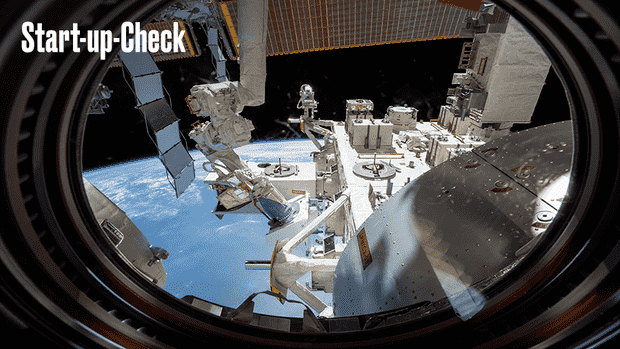Dusseldorf Max Gulde wants to use satellite data to reduce water consumption in agriculture. Because the actual requirement can hardly be calculated, fields are often irrigated unnecessarily. After years of research, Gulde can now begin his mission: his start-up Constellr will receive ten million euros from venture capitalists around Lakestar and Vsquared Ventures.
The Freiburg start-up wants to use the money to build two satellites. Thermal technology, i.e. thermal imaging processes, should determine the water requirements plot by plot from space and enable farmers to make better decisions after the launch in 2024.
Constellr founder Gulde refers to assessments by the Food and Agriculture Organization of the United Nations (FAO): “70 percent of freshwater goes into agriculture, the FAO estimates that 60 percent of it is wasted.” He sees a problem with potential for disaster.
Top jobs of the day
Find the best jobs now and
be notified by email.
“It’s not about optimizing a bit of irrigation, it’s about preventing an agricultural collapse.” If you forecast the rising water costs and current use in the future, global agriculture would have to pay around two trillion euros in 2030 for water alone.
The consequences would be massive price increases for wheat, corn and oats – and probably hunger crises. Gulde also sees a danger for companies: “If we don’t manage to save costs, a large part of agriculture will simply no longer be worthwhile.” That also means optimizing consumption.
What can Constellr do?
Constellr equips microsatellites with a special thermal technology. The satellites, which are about the size of a refrigerator, will monitor the surface temperature of the ground and, in the future, its chemical composition. The data is to be used to continuously determine water and fertilizer requirements as well as disease infestation. According to Max Gulde, four satellites are enough to collect data for every agricultural field on earth day after day.
The satellite images show the water demand from thermal processes.
(Photo: ConstellR)
Who is behind this?
The idea for Constellr came from the Freiburg Fraunhofer Institute for High-Speed Dynamics (also: Ernst Mach Institute or EMI). In 2020, Gulde founded the company with three colleagues. Today the physicist manages the 40-employee company together with business economist Christian Mittermaier.
Can you make money with it?
Initially, development costs will exceed revenue. Therefore, the company is financed with venture capital. Investor Herbert Mangesius from Vsquared Ventures believes it is possible to break even within five to seven years. Lakestar partner Steven Jacobs estimates the initial market size at one billion euros.
Interest in the market is certain: “Detection of field conditions using, for example, satellite data evaluations is an essential part of current and future farm management systems,” says Guido Ringling, who is looking for new technologies and investment opportunities for the agricultural engineering and commercial vehicle company Krone.
Listen to the “Rethink Work” podcast here: From Hartz IV child to entrepreneur
As early as 2018, the chemical company BASF announced a cooperation with the Californian satellite company Planet to provide farmers with data from satellite images.
Gulde also wants to address such companies from agrochemicals and food production and differentiate itself from the competition, which has to calculate the temperature from image data, with more reliable temperature measurement. “Irrigation companies that we work with are currently assuming at least 40 percent water savings,” says Gulde – so far, more was only possible with a weather station directly in the field.
The founding trio after the launch of the first satellite on the beach in West Virginia.
(Photo: ConstellR)
What investors say:
“In our efforts to combat the effects of climate change, we must ensure that global food and water systems are more resilient,” says Lakestar partner Steven Jacobs. “The need for scalable surveillance solutions like the ones Constellr offers has never been greater.”
How high is the risk?
Hard to say. A certain amount of hype has already arisen about the future business with satellite data. For someone who hasn’t invested, there’s a good chance the market will become very competitive very quickly.
Also good to know:
More and more companies are launching satellites, and space is getting crowded. Experts already see a danger for space missions in the raging space debris from old and broken satellites.
With his start-up Vyoma, Stefan Frey wants to make space safer and is developing intelligent technology for space surveillance. He says: “The sheer number of certain constellations can even lead to orbital exclusion from other missions that no longer dare to fly in a now dangerous orbit.”
>> Now also read: 30 percent fewer start-ups – only one industry is developing positively
However, Constellr will operate on low orbits, where the density of space debris is relatively low and “the objects quickly burn up or crash.” The danger to other missions is therefore not as great as with communications satellites.
Every week, the Handelsblatt presents young companies that managers, entrepreneurs and those interested in business should now take a look at. The focus is on the innovation potential, which investors also pay particular attention to. The business models and ideas could also provide new impetus for products and solutions in other sectors.
More: You can find all episodes of the start-up check here
